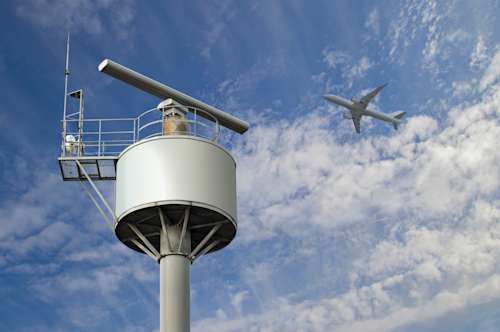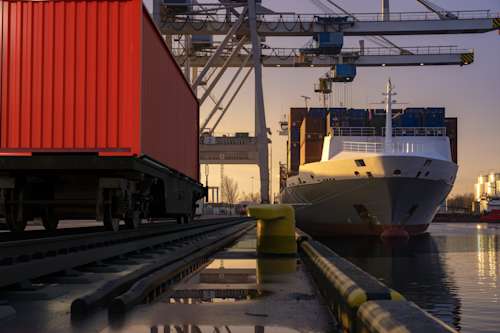SMETA Audit for Ethical Business Practices Across Your Supply Chain
Meet key ethical and operational standards in critical areas of business practices within your supply chain.
QIMA’s SMETA audit evaluates a company's adherence to labor standards, health and safety, environmental performance, and business ethics. Our audit can focus on two or all four of these pillars and is designed to promote responsible sourcing and ethical trading.
On this page you can find out more about:
SMETA Audit Expertise
The SMETA Audit Methodology
SMETA 2-Pillar Audits
SMETA 4-Pillar Audits
SEDEX Virtual Assessment
QIMA Benefits
Need more information?
By contacting QIMA you agree to our privacy policy and terms and conditions.
SMETA Audit Expertise
SMETA (Sedex Members Ethical Trade Audit) is an ethical audit methodology covering all aspects of responsible business practice. SMETA is the most used social audit in the world. It was designed to enable businesses to evaluate working conditions within their supply chain.
SMETA audits also serve as a practical tool to assess and improve CSR performance and provide evidence to support favorable ESG ratings.
QIMA is a certified Sedex partner, approved to carry out SMETA audits. Our qualified and experienced auditors assist you in achieving compliance with ethical standards at all levels of your supply chain.
We specialize in providing the standards and frameworks needed to monitor your suppliers effectively. Our SMETA social and ethical audits help reduce risks of human rights abuses, such as forced labor, and improve the overall health and safety of workers in your supply chain.
We offer four SMETA tools to help you secure your supply chain:
Self-Assessment Questionnaire (SAQ) - Suppliers can submit a self-assessment to evaluate their practices.
Sedex Virtual Assessment - A remote evaluation of workplace conditions..
Third-Party SMETA Audit - An in-person examination in accordance with Sedex protocols.
Corrective Action Plans - Tailored recommendations provided as needed following an in-person audit.

QIMA is an APSCA member and one of only 51 SMETA-certified Affiliate Audit Companies
The SMETA Audit Methodology
QIMA is proud to be one of only 51 APSCA members authorized to conduct official SMETA audits.
SMETA audits are based on the ETI Base Code, which is founded on the conventions of the International Labor Organization, as well as relevant local laws. SMETA audits can be conducted against two or four auditing pillars. The two mandatory pillars for any SMETA audit are Labor Standards and Health & Safety. The additional two pillars in a 4-pillar audit are Business Ethics and Environment. These were introduced to further enhance the social responsibility aspect of SMETA audits.
SMETA 2-Pillar Audits
The SMETA 2-pillar audit gives you an indication of your supplier’s adherence to ethical working standards. It includes two auditing pillars, Labor Standards and Health & Safety. The SMETA 2-pillar audit comprises the following modules:
Labor Standards
Health and Safety
Additional Elements:
Management Systems
Entitlement to Work
Subcontracting and Homeworking
Environmental Assessment (shortened)
The 2-pillar SMETA audit can be a good starting point for auditing and addressing issues within your supply chain.
SMETA 4-Pillar Audits
The SMETA 4-pillar audit is the full SMETA audit. It includes the Labor Standards and Health & Safety modules of the 2-pillar audit, plus the Environmental Assessment and Business Ethics modules.
The full SMETA audit covers:
Labor Standards
Health and Safety
Environmental Assessment (extended)
Business Ethics
SEDEX Virtual Assessment

We are authorized to conduct Sedex Virtual Assessments and can help you take the right actions to strengthen your supply chain and improve your CSR/ESG ratings.
Sedex Virtual Assessments offer a remote alternative to the standard SMETA Audit. Based on the SMETA audit methodology, these remote assessments use video conferencing technology to connect an auditor with the factory site.
The virtual assessment initiative was launched in July 2020 in response to the COVID-19 pandemic and delays in on-site audits due to difficulties in gaining physical access to factories.
While a Virtual Assessment may be a suitable solution to reduce risk when physical access to a factory is not possible, it should not replace a complete in-person audit to verify social and labor conditions. An in-person audit should always be performed when possible.
Before a virtual assessment can take place, we must first:
Confirm reliable internet connectivity
Ensure suitable facilities for assessments and worker interviews
Verify accessibility to all site areas
Assess if the site operates at sufficient capacity to reflect true conditions.
Create an account and book a SMETA Audit
Want to learn more? Download our insert and discover how we can support your business.
QIMA Benefits
In-depth local knowledge with auditors attuned to the culture, laws and practices of their region.
CSR experts receive regular training on regulations and best practice.
Global coverage across 100 countries in Asia, Africa, Europe, North and South America.
Continuous improvement approach drives long-term change and empowers suppliers to act.
Online program management book audits, make payments, and download detailed reports.
Custom compliance dashboard to assess supplier performance, track progress and visualize your supply network.
Ranked #1 in the industry for customer satisfaction based on independent NPS measurement.




